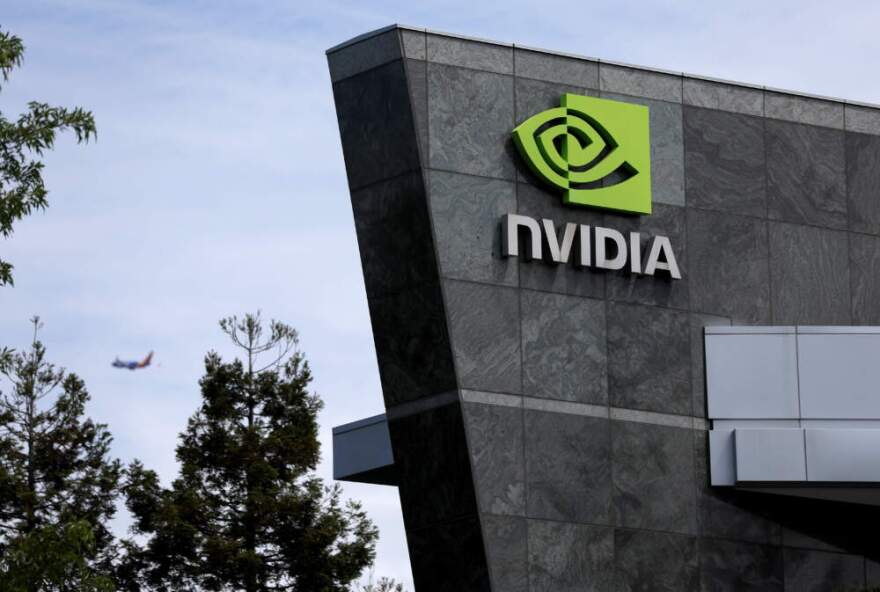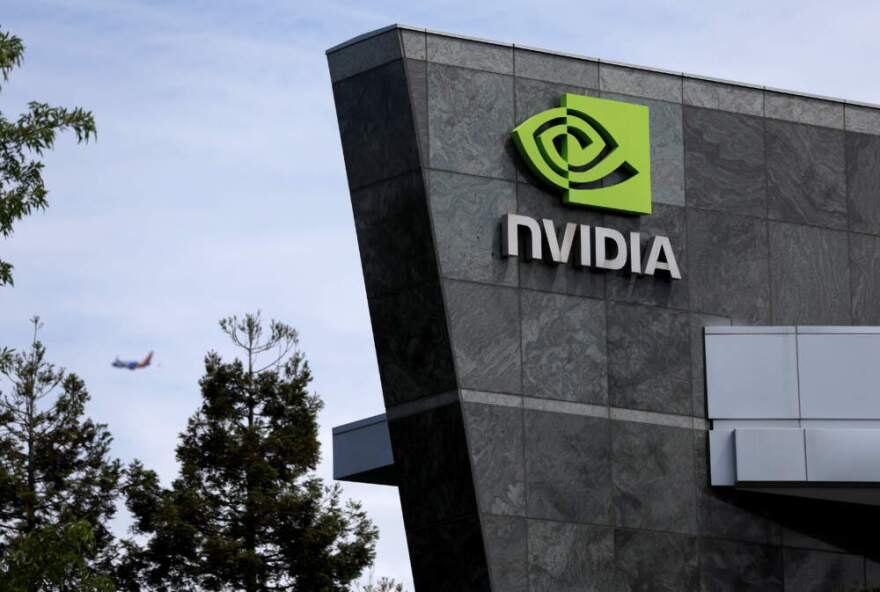
Nvidia has become the first publicly traded company worth $4 trillion.
Nvidia makes computer chips for artificial intelligence, and it reached this milestone valuation before more well-known tech-industry heavyweights like Apple and Microsoft.
Chris Miller, author of the book “Chip War: The Fight for the World’s Most Critical Technology,” explains why Nvidia is gaining so much traction so fast, and what it says about the value of chips.
8 questions with Chris Miller
Do you think Nvidia is really worth $4 trillion?
“Nvidia produces a product that all of the other largest companies in the world can’t get enough of. Apple, Microsoft, Meta, Alphabet. If you get on the list of the world’s largest companies, they’re all trying to buy Nvidia’s products. They all can’t get enough of them. They’re all willing to pay almost anything to get access to more of them, and that’s why Nvidia’s now the world’s most valuable company.”
When did the company start? Who’s behind it?
“The company was founded several decades ago by Jensen Huang, who’s still the CEO. And initially, the company made chips for gaming. They had graphics capabilities that were unique and showed pictures in computer games in a very realistic fashion. But they discovered, about a decade ago, that the same math that undergirds showing computer graphics is also really good for artificial intelligence. And so today, the company specializes in producing the chips that make AI systems like Chat GPT possible.”
What did the company do to put it on top?
“Long before Chat GPT, Nvidia really went all in on AI. Until 2022, when Chat GPT was released, a lot of companies weren’t sure whether there was really a large market out there for chips that were specialized in AI, and companies like Intel, they had programs that were intended to develop AI-capable chips, but it wasn’t a priority. Whereas Jensen Huang, the Nvidia CEO, realized, I think, far above most of his peers, that AI would be a huge market. And he was absolutely right.”
Nvidia is an American company. There has been a lot of back and forth under both the Biden and Trump administrations to ensure that China does not win the race for AI. Under the Biden administration, they had export controls on chips. This month, we saw the Trump administration reverse course and allow the sale of certain chips from Nvidia to China. Can you make sense of this back and forth?
“If you want to train and deploy big AI systems, you need three things. You need data, you need algorithms or models, and you need lots of computational power, which requires many thousands of these ultra-advanced chips. And today, the vast majority of AI chips deployed anywhere in the world are Nvidia’s. They’re designed in California and manufactured by Nvidia’s partner, TSMC, in Taiwan. And they’re far ahead of their competitors, both their U.S. competitors, but also competitors in China, like Huawei, which produces AI chips, but they’re less capable. And just as important, they can’t produce in the volumes that Nvidia can.
“And so that’s why, since actually all the way back to the first Trump administration, there’s been a desire to keep the most advanced chip-making capabilities, and also AI chips, out of the hands of Chinese companies. And there’s been an escalating series of restrictions that the Biden administration certainly enhanced, but also the Trump administration. Just a couple months ago, the Trump administration banned a new class of Nvidia chips called H20 from going to China, and that’s the policy that was just reversed about a week ago.”
Why did the Trump administration reverse that decision?
“Well, it’s not exactly clear. We’ve heard conflicting reports from different figures in the administration about why. We’ve heard some officials say it was the result of U.S.-China trade negotiations.
“Others say it was a strategic shift designed to let Nvidia make more money selling into the Chinese market. It’s also not clear what exactly the decision was. From what we understand, Nvidia will now have to apply for licenses to sell to certain Chinese companies, and we don’t yet know which, if any, Chinese companies will actually get licenses to buy these chips.”
There are national security concerns and economic concerns. How do you see those multiple competing pressures playing out at this moment with American lawmakers?
“There are competing concerns. I think that companies that make the chip-making tools want to sell more tools, but the more tools that are sold, the harder it gets for Western chip-making companies to compete because it enables their Chinese competitors. Same thing is true for AI chips. The more AI chips you sell to China, the better it is for the U.S. companies that make AI chips, but the worse it is for the U.S. companies that make AI models, because they have stronger competitors in China.
“One of the questions the administration, I think, has to answer is, does strengthening the U.S. AI chip-making companies by letting them sell to China actually undermine the users of those chips in the U.S. by making their Chinese competitors like DeepSeek or like Byte Dance even more capable than they otherwise would be?”
What do you think?
“It’s a tricky trade-off. There’s no doubt that if China gets access to more Nvidia chips, China’s AI ecosystem will be more capable.”
Why is there so much competition around the world over chips?
“When it comes to artificial intelligence, access to more advanced computing capabilities is a fundamental driver, perhaps the fundamental driver, of progress. And that means you need bigger, better, more capable chips every single year. And there are just a couple of firms like Nvidia and TSMC that play an absolutely critical role in their production. And so, whether or not a given country or company has access is really a critical determinant of its ability to compete in artificial intelligence.”
This interview was edited for clarity.
____
Ashley Locke produced and edited this interview for broadcast with Todd Mundt. Allison Hagan adapted it for the web.
This article was originally published on WBUR.org.
Copyright 2025 WBUR

